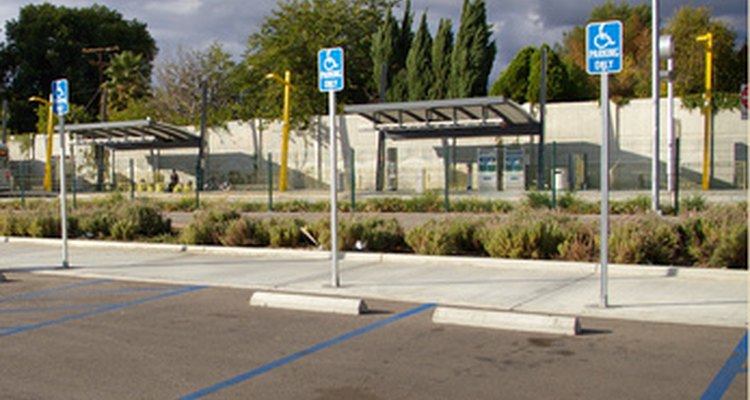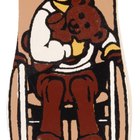
Caring for a disabled child is difficult even in the best of times. If you are low income, it can seem like a daunting task. However, resources are available to assist you. In some cases, you can receive payments from county, state or federal agencies for being the caregiver of a disabled child. You may also be eligible for other services, like food, housing and medical care.
Start With Social Security
Apply for Supplemental Security Income (SSI) for the child at the local Social Security office. If your child qualifies for SSI, you will receive a monthly payment on the child's behalf. Contact the county social services or health and human services department; they may have SSI advocates on staff who can help you. After the child turns 18, the case is put in the child's name and your income is no longer relevant. At that point, you can seek part or full-time work and it will not count against the child's benefits.
Qualify At the Local Level
Apply for in-home supportive services for your child at the county social services or health and human services office. Depending on the state, your child may qualify for Medicaid and in-home supportive services. You can also sometimes apply to train as an in-home supportive services caregiver with the county. After your child has been approved to receive county services, you may qualify for a certain number of hours per month, depending on the severity of the disability. Generally the pay is close to minimum wage. However, you may also qualify for Medi-Cal/Medicaid, food stamps and cash aid.
Call for Referrals
Call 211 if it is available in your area. Operators can provide health and human services information and referrals to other agencies and nonprofits. As a caregiver, you may also qualify for respite payments, intended to allow you a few hours or days away from your duties. In addition, you may qualify for subsidized housing (Section 8), assistance in receiving or modifying a vehicle and the United States Department of Agriculture (USDA) food program.
Get a Handicapped Placard
Contact your state's department of motor vehicles for a handicapped placard if your child's disability is due to mobility issues, heart or circulatory disease, lung disease or blindness. A doctor or health practitioner's certification must accompany the application. Many states do not charge a fee for a permanent placard. It's a minor benefit, but it can be helpful when you're shopping or running errands.
Don't Overlook the DVA
Go to the county Veterans Services Office if one parent is a disabled veteran, died while on active duty or served in Vietnam. Benefits for the disabled children of veterans are available through the Department of Veterans Affairs. The surviving parent may also be eligible for payments through the VA. Every county and parish in the United States has a Veterans Services Office.
A Few Final Tips
Patient persistence is key to receiving government benefits. It's natural to be frustrated if your application doesn't go smoothly, but venting at agency staffers won't usually help. Remember, even an outright refusal isn't the end of the story: If your child is denied SSI benefits, you can appeal and seek the assistance of an SSI advocate or an attorney. The lawyer receives a percentage of the back pay; you do not have to pay him directly for his services. Many benefits are dependent upon the parent's income, and income limits vary depending on the program. Apply; do not assume that you do not qualify. It is worth remembering that services vary from state to state. Some states do not pay parents to care for a disabled child.
Related Articles

How to Get Paid to Care for Someone on ...

How to Get Paid for Taking Care of ...

What Does a Military Spouse Get at the ...

How to Get Paid to Care for a Relative

How to Get Paid for Caring for Your ...

How to Apply for Welfare Benefits in ...

How to Get Rental Assistance for Seniors

Programs to Take Care of a Disabled ...

How Much Are Monthly Disability ...

Welfare Assistance Qualifications in ...

Help With Funeral Payments for ...

Ontario Grants for Family to Care for ...

How do I Get my Baby's Birth ...

How to Get Emergency Cash Assistance

How Do I Find Out the Tax ID Number for ...

What Is a Caregiver's Authorization ...

Government Funding for Taking Care of ...

What Are Death Benefits for Veterans?

The Pros & Cons of Family Assistance

Divorce Assistance for Women
References
- U.S. Social Security Administration: Supplemental Security Income (SSI) Program
- U.S. Social Security Administration: Benefits for Children with Disabilities
- United States Department of Agriculture: Supplemental Nutrition Assistance Program (Food Stamps)
- U.S. Social Security: Understanding Supplemental Security Income SSI for Children
- U.S. Social Security Administration: Benefits for People with Disabilities
Resources
Writer Bio
With degrees in fine and commercial art and Spanish, Ruth de Jauregui is an old-school graphic artist, book designer and published author. De Jauregui authored 50 Fabulous Tomatoes for Your Garden, available as an ebook. She enthusiastically pursues creative and community interests, including gardening, home improvement and social issues.
Photo Credits
Handicap Parking image by Joelyn Pullano from Fotolia.com